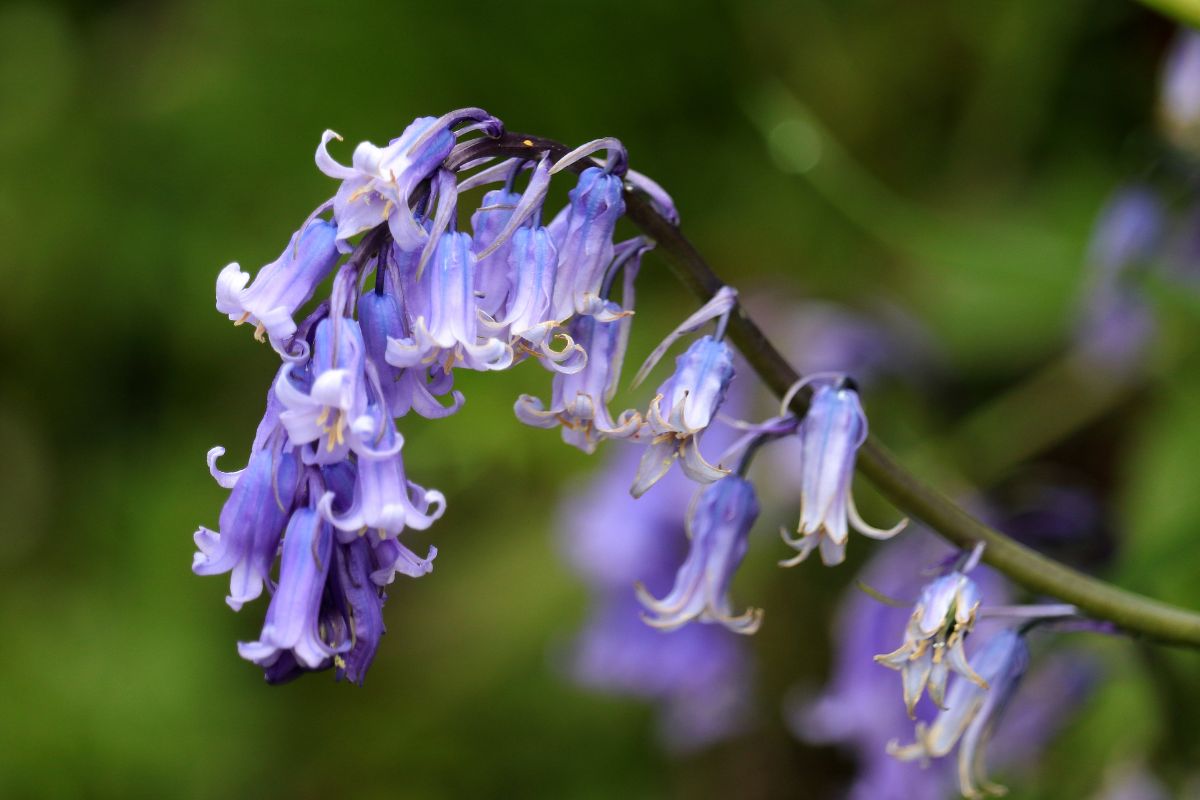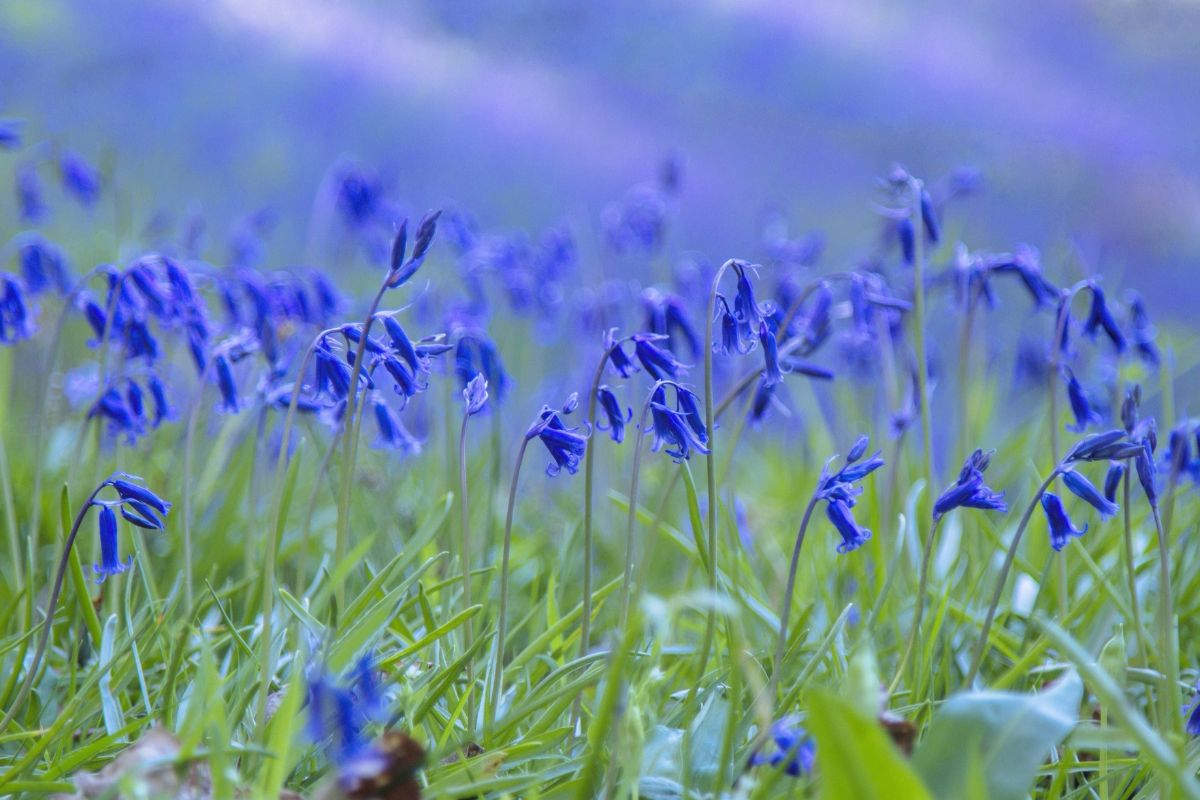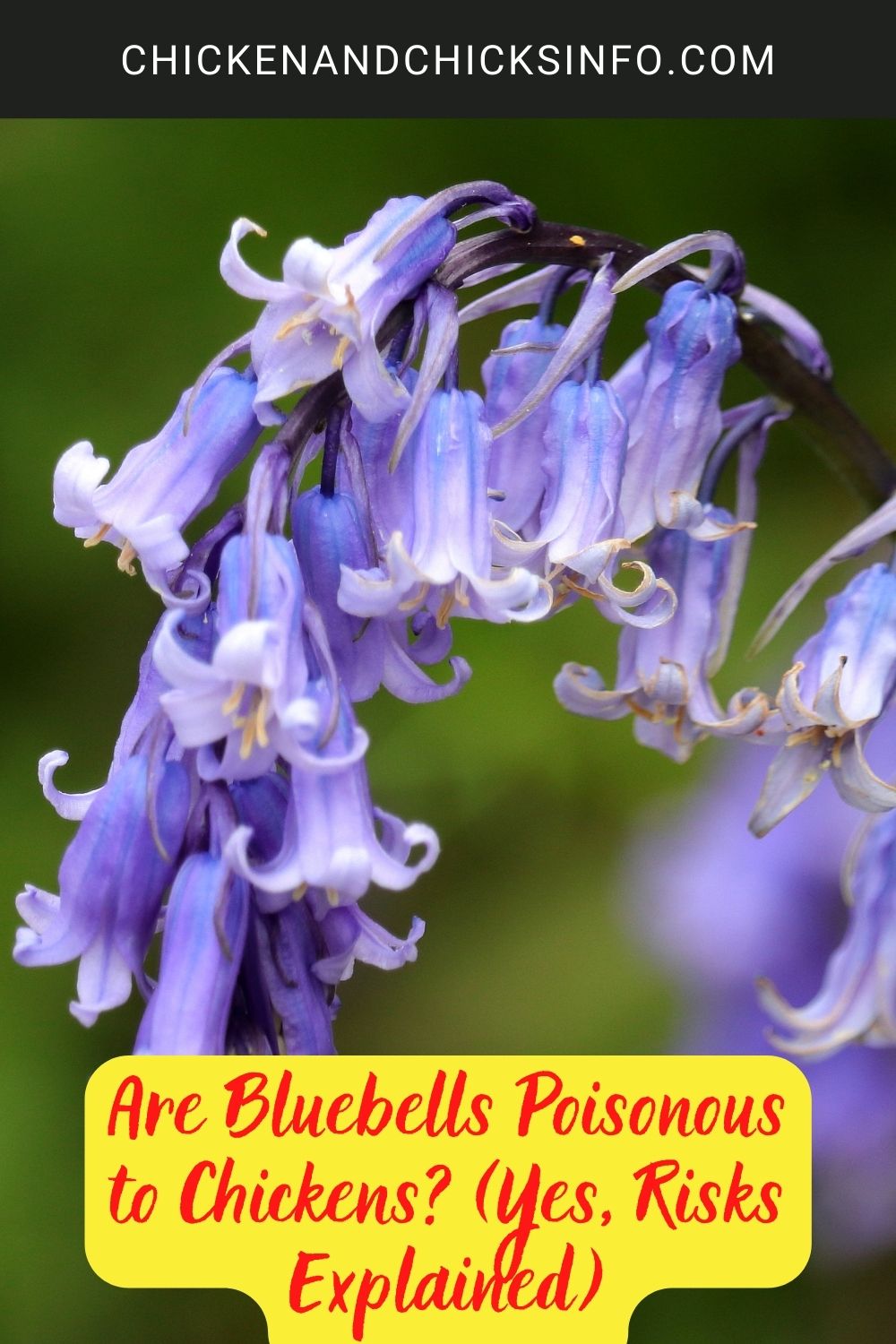
If you’re checking all the plants in your yard or where your chickens roam are safe for them to eat - you need to be aware that bluebells pose a potential risk.
It comes as a surprise to most, but bluebells are poisonous to chickens. They contain scillarens, which is a chemical known to reduce heart rate and can cause diarrhea, vomiting, lethargy, and some other symptoms in pets.
Jump to:
What Are Bluebells?
For me, bluebells (also known as hyacinth, cuckoo’s boots, and fairy flowers among other names) are one of the most iconic and enchanting wildflowers.
Not only because they grow all over where I live and I love them, but they’re one of the flowers often depicted in movies and animations.
They are perennial herbs that typically flower around April onwards. There’s no mistaking a bluebell once you know what they look like, they have bell-shaped violet-blue flowers that droop over in clusters.
Despite their beautiful and colorful appearance, they do pose a health risk to chickens and other pets though, as I’ll explain in this article.
Are Bluebells Poisonous to Chickens?

Fortunately, I don’t know of any cases firsthand where chickens have eaten bluebells. I say, fortunately, because I wouldn’t want to find out what would happen if chickens ate some. Because we know bluebells are toxic.
According to Woodlandtrust.org, all parts of the bluebell plant contain toxic glycosides that are known to be poisonous to humans, dogs, cats, cattle, and other small animals.
So, it’s safe to assume that they are also poisonous or toxic to chickens.
The interesting thing is that I’ve spoken with a number of people raising backyard chickens or working on farms, and they were either not aware of this or knowingly allowed their chickens to free-range around bluebells.
Everyone I spoke to said their chickens were smart enough not to eat them. Which, I know can be true in the case of some plants and foods that are toxic to chooks.
But it’s not a risk I’d like to take personally. If I know a plant or food is toxic to my chickens, I won’t allow them access to it.
Maybe I’m being over-cautious, but I know how my girls can and will eat their way through anything that gets in their path. It’s not a chance I want to take.
If chickens were smart enough to always figure out what they can and can’t eat, we’d never have a case of toxicity, foreign objects impacting a crop, and so on.
Some Other Plants That Are Harmful to Chickens

It’s a real eye-opener just how many innocent-looking plants pose potential threats to chickens.
Here are some of the other plants known to be toxic or poisonous to chickens in some capacity:
- Monkshood
- Wisteria
- Amaryllis
- Tulips
- Foxglove
- Daffodils
- Jimson Weed
- Azaleas
- Tansy
- Nicotiana
- Nightshade
- Trumpet Vine
As I mentioned above, some chicken owners are happy to trust their flock not to eat anything they shouldn’t.
I’ll leave that decision up to you. It’s still important to be aware of any plants that are toxic, however, so you’ll know what to expect should the worst-case scenario happen.
Related - Dock leaves and dandelions are perfectly safe for chickens.
What Happens If Chickens Eat Bluebells?
As I mentioned above, I can’t find any information regarding chickens eating bluebells, but we do know how this plant affects cats and dogs.
When overly curious cats and dogs eat bluebells, it irritates their mouth and digestive tract causing them some serious discomfort.
In small amounts, it causes vomiting, diarrhea, disorientation, and lethargy. Most of these symptoms should pass in due time without any lasting effects.
Eaten in large quantities, however, bluebells can reduce heart rate and are potentially fatal. I can’t find any reliable information on how much a “large quantity” is. It’s going to depend on the size of the animal.
In Summary
If you have bluebells where your free-range chickens roam, you have a dilemma; do you make sure your chickens can’t get near them? Or do you trust them not to eat them?
That’s up to you. All I can do is raise awareness around the dangers of bluebells and some of the other poisonous plants.





